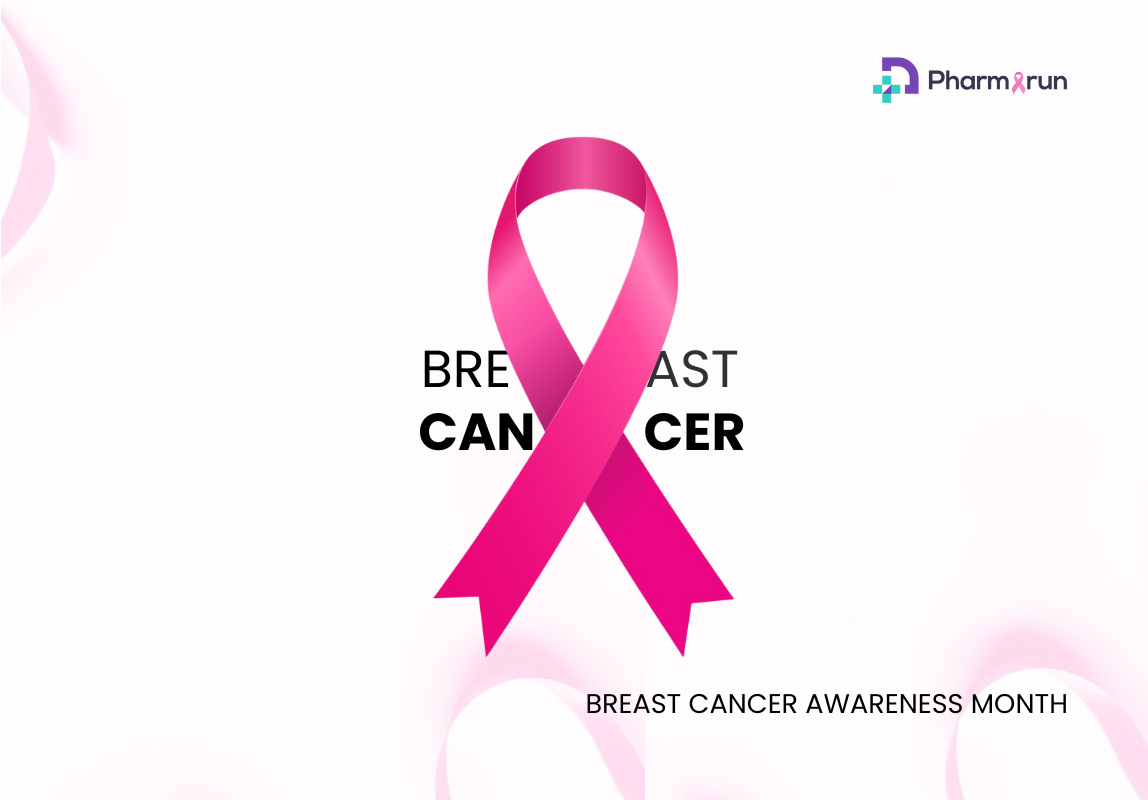What is High Cholesterol, Types, Symptoms & Importance of Testing | Pharmarun

Cholesterol is a waxy, fat-like substance naturally produced by your liver and found in certain foods you eat. It's important for healthy cell formation and various bodily functions. It helps create hormones, vitamin D, and even aids in digestion. However, just like anything in life, it has to be in moderation.
When bad cholesterol levels becomes high, it can silently contribute to a serious health threat: cardiovascular disease. This condition, encompassing heart attack, stroke, and peripheral arterial disease, remains a leading cause of mortality worldwide.
This blog post discusses cholesterol, exploring its different types, the importance of testing, and the various treatment options available. By the end, you'll be equipped with the knowledge and resources necessary to maintain optimal cholesterol levels and safeguard your long-term cardiovascular health.
Types of Cholesterol
Cholesterol, which is important for the body's functioning, can’t travel freely through the bloodstream. Instead, it partners with proteins to form lipoproteins, which function as transport vehicles. Here are the types of Lipoproteins:
- LDL Cholesterol (Low-Density Lipoprotein):
Often referred to as "bad" cholesterol, LDL particles are dense and carry a large amount of cholesterol. When LDL levels are elevated, these particles can accumulate on the inner walls of arteries, forming a sticky substance called plaque. This plaque buildup narrows the arteries, a condition known as atherosclerosis. Over time, narrowed arteries restrict blood flow, significantly increasing the risk of heart attack, stroke, and peripheral arterial disease.
- HDL Cholesterol (High-Density Lipoprotein):
Conversely, HDL cholesterol is considered "good" cholesterol. HDL particles are less dense and help to pick up excess cholesterol in the bloodstream and transport it back to the liver for elimination. Therefore, maintaining healthy levels of HDL cholesterol helps prevent the buildup of plaque and promotes cardiovascular health.
While not technically a lipoprotein, triglycerides are another type of fat carried in the bloodstream. High triglyceride levels, often alongside high LDL and low HDL, can further contribute to the formation of plaque in arteries and worsen cardiovascular risk.
Symptoms of High Cholesterol
One of the most concerning facts about high cholesterol is it is often silent nature. Unlike some medical conditions that manifest through readily noticeable symptoms, high cholesterol levels frequently progress without causing any outward signs or discomfort. This deceptive characteristic underscores the important role of regular cholesterol screenings in identifying potential problems before they escalate.
However, it's important to be aware that in rare instances, serious cases of high cholesterol, particularly when plaque buildup in the arteries becomes severe, may present with certain warning symptoms. These can include:
- Chest pain (angina): This can manifest as a squeezing, pressure-like sensation in the chest, often triggered by exertion or emotional stress.
- Shortness of breath: Difficulty catching your breath, especially during physical activity, can be a sign of narrowed arteries struggling to deliver sufficient oxygen-rich blood throughout the body.

Why Regular Cholesterol Testing is Important
Given the often symptomless nature of high cholesterol, regular testing becomes the only tool for early detection and intervention. Early identification of high cholesterol levels empowers individuals to take proactive steps towards managing their heart health and preventing future complications.
Here's why regular cholesterol checks are advised for everyone.
- Early Detection and Intervention:
Cholesterol levels tend to rise gradually over time. By detecting these changes early, individuals can implement lifestyle modifications, such as dietary changes and exercise, to address the issue before it progresses significantly. Early intervention can significantly reduce the risk of plaque buildup and the associated cardiovascular complications.
- Risk Stratification:
Cholesterol testing provides valuable information for healthcare professionals to assess an individual's overall cardiovascular risk profile. Factors like age, family history, smoking status, and blood pressure are considered alongside cholesterol levels to determine the likelihood of developing heart disease. This risk stratification allows for personalized treatment plans, potentially including medication alongside lifestyle modifications for high-risk individuals.
- Monitoring Treatment Efficacy:
For individuals diagnosed with high cholesterol and undergoing treatment, regular testing helps to monitor the effectiveness of the treatment plan.
Who Should Get Tested and How Often?
The frequency of cholesterol testing recommendations vary depending on individual risk factors. Generally, the following guidelines apply:
- Adults aged 20 and above:
Initial screening is recommended between the ages of 20 and 35, with follow-up frequency determined by individual risk factors.
- Increased Risk Factors:
Individuals with a family history of heart disease, high blood pressure, smokers, or those with a body mass index (BMI) exceeding 25 may require more frequent testing, as determined by their healthcare provider.
Treatment Options for High Cholesterol
Fortunately, there are effective strategies to manage high cholesterol and safeguard your cardiovascular health. The first line of defense, and often the most impactful, focuses on adopting healthy lifestyle habits:
- Dietary Adjustment
Dietary changes play a pivotal role in lowering LDL cholesterol and increasing HDL cholesterol. This primarily involves:
i. Reduce Saturated and Trans Fats: Limiting saturated fats found in red meat, full-fat dairy products, and processed foods is advised. You should also eliminate trans fats, often present in commercially baked goods and fried foods.
ii. Eat Healthy Fats: Replace saturated fats with unsaturated fats, abundant in fatty fish, avocados, nuts, and olive oil, promotes heart health.
iii. Eat Fiber: Include soluble fiber, found in fruits, vegetables, and oat bran, to help bind cholesterol in the digestive tract, and eliminate it.
- Exercise for a Healthy Heart
Regular physical activity is a cornerstone of managing high cholesterol. Practise at least 150 minutes of moderate-intensity aerobic exercise (brisk walking, swimming, cycling) or 75 minutes of vigorous-intensity exercise (running, jumping rope) per week.
- Weight Management Strategies
Maintaining a healthy weight significantly reduces the risk factors associated with high cholesterol. If you're overweight or obese, consult your doctor or a registered dietitian to develop a safe and sustainable weight loss plan.
Medication Options for High-Risk Individuals
For individuals deemed high-risk due to severe cholesterol levels, a doctor may prescribe medications alongside lifestyle modifications. These medications work through various mechanisms to lower cholesterol levels and reduce cardiovascular risk. It's important to note that medications should only be taken under the supervision of a healthcare professional, who will determine the most appropriate type and dosage based on your individual needs and medical history.
Conclusion
Maintaining healthy cholesterol levels is a lifelong commitment. By prioritizing a balanced diet rich in fruits, vegetables, and healthy fats, engaging in regular physical activity, and managing weight, we can significantly reduce our risk of cardiovascular complications. For individuals deemed high-risk, medication, in conjunction with lifestyle modifications, can be a powerful tool for managing cholesterol levels.
If you need any medications, use Pharmarun. We will not only deliver quality medications to your doorstep anywhere in Nigeria but also allow you to set up regular deliveries, picking when you want them.
Pharmarun provides free access to pharmacists, doctor consultations, lab test booking, and helps you take care of your loved ones, no matter where you are in the world. You can also get delivery when you order via the Pharmarun Wallet. Click here to get started.
With the Pharmarun web app, you can also check your Body mass index (BMI), Ovulation etc for free. Click here to get started.Pharmarun is the simple solution you need to live a healthy life. Click here to get started with Pharmarun.
Lastest bants
Stories, facts and bants on this journey to ensuring access to medication for Africa
Download Pharmarun today!
Get started with us today by using our delivery service. Also, be one of the first to experience our unique healthcare platform.





